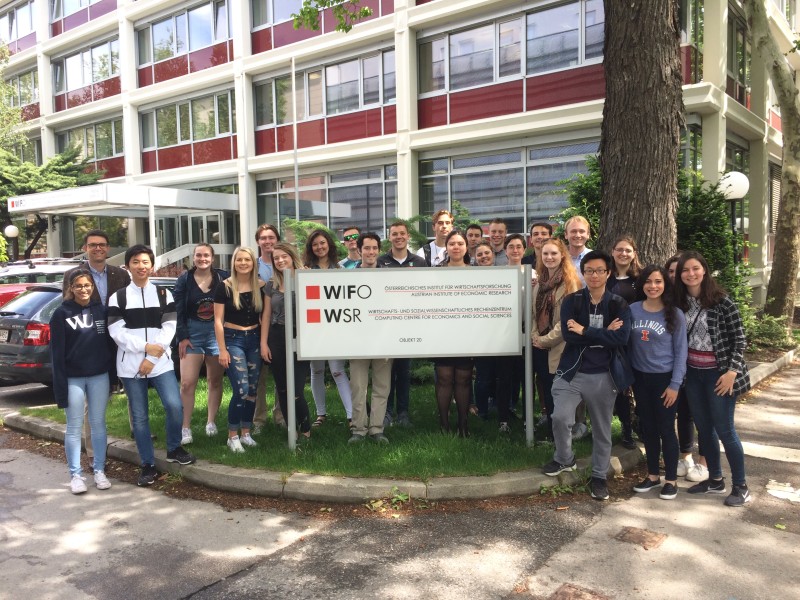According to Christen, trade policy challenges for internationally intertwined trade relations have grown significantly in recent years. The advantages of trade liberalisation efforts are being questioned, protectionist measures are increasingly coming into focus and the multilateral trading system of the WTO has been weakened since the failure of the Doha Round. Some facts on the increase of trade defence instruments and other non-tariff barriers, on the depth and scope of new free trade agreements and on striking differences in tariff levels show a reorientation of trade policy, as Christen pointed out in her presentation to the delegation from Illinois.
She paid special attention to the development of transatlantic trade relations with regard to the "America first" trade policy of the USA. Although it appears that the EU imposes higher tariffs than the USA on 50 percent of all products on average, the USA implements the highest number of protectionist measures in the world. In the current trade conflict, more than 10 percent of US imports, especially intermediate products, are currently subject to trade barriers. The US' most important trading partners feel this to very different degrees: while around 50 percent of Chinese exports are affected, the share of the EU (2.5 percent) is relatively low in comparison. As Elisabeth Christen pointed out, the current trade conflict between the USA and the EU as well as other countries and the retaliatory measures associated with it are associated with in part high economic costs and welfare losses and a further escalation of the trade dispute should be prevented.
Oberhofer then informed the guests about the trade and welfare effects of Brexit. In the following discussion, the participants discussed which Brexit scenario would be most realistic from today's point of view and under which conditions the UK could return to the EU. The question of the Irish-Northern Ireland border issue also met with particular interest among visiting students from the USA.



